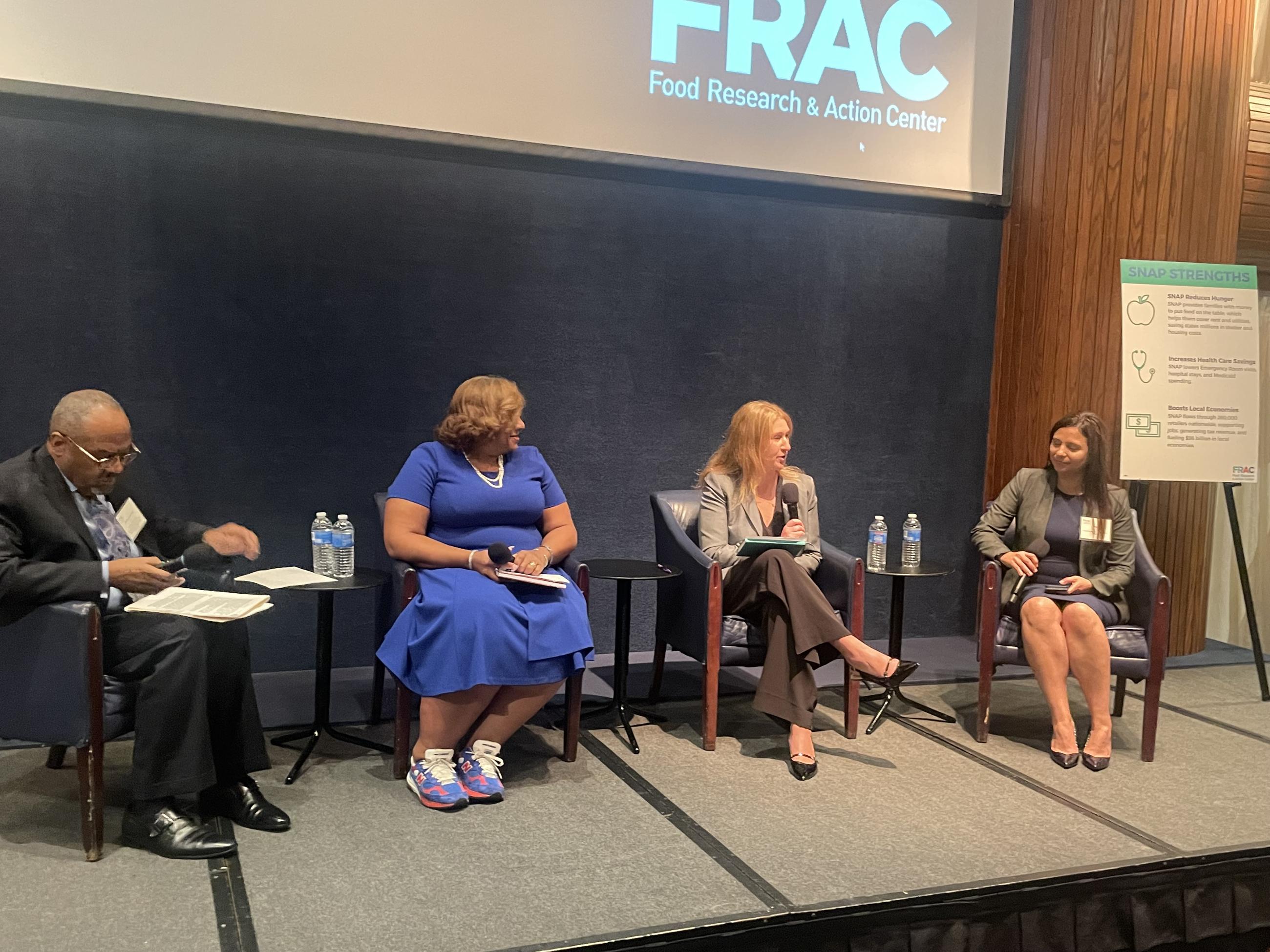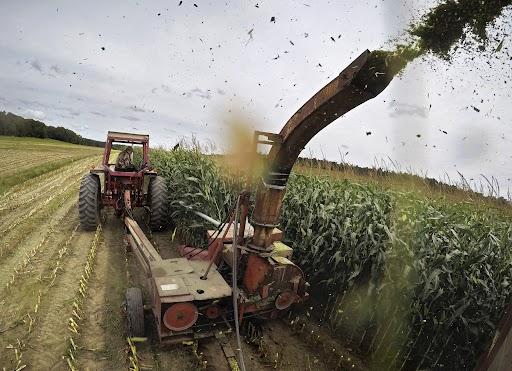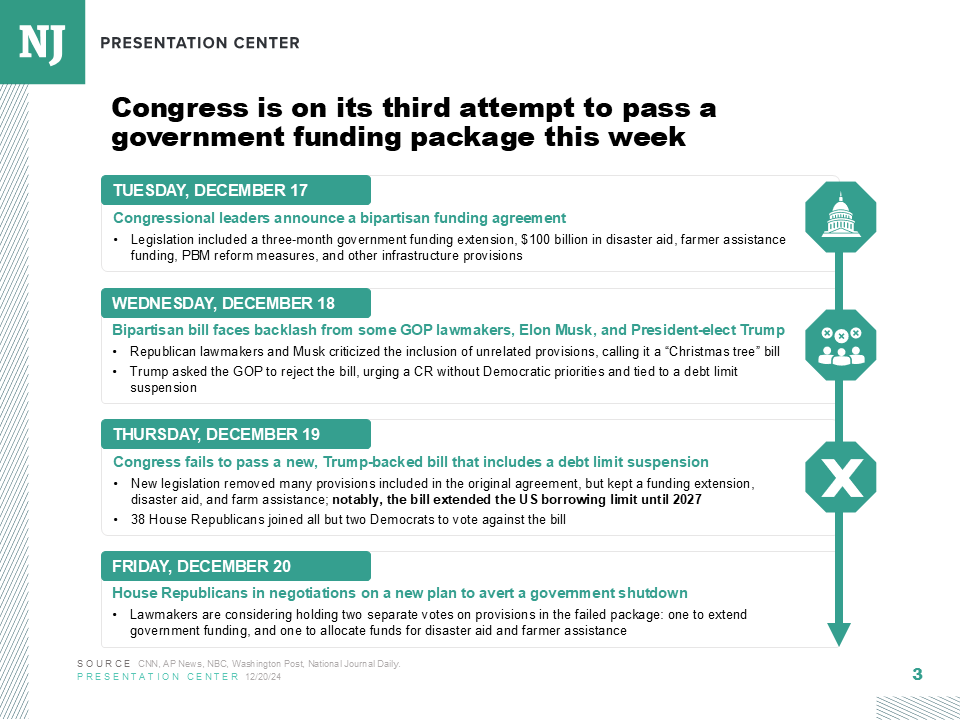Mark Nov. 1—three and a half weeks from now—as the first test of the acceptance of the cuts in nutrition programs under the Republican-passed One Big Beautiful Bill Act that President Trump signed on July 4.
Last Friday, the Agriculture Department’s Food and Nutrition Service notified the state agencies that administer the Supplemental Nutrition Assistance Program—the program that provides food-purchasing power for more than 40 million people—that by Nov. 1 they “must provide households with a consolidated written notice and an oral explanation” of all changes in work requirements and other restrictions under the program.
The new regulations are highly technical and nuanced. For instance, SNAP beneficiaries who are categorized as ABAWDs (Able-Bodied Adults Without Dependents) but are over age 54 have not previously been subject to a time limit of three months in a three-year period unless they meet work requirements. Now, however, they will be, and the government must notify them as such.
Anti-hunger advocates are shocked by the speed of the implementation. Crystal FitzSimons, the president of the Food Research & Action Center, the nation’s premier anti-hunger lobbying group, said this week that the state agencies should have 12 to 18 months to implement such big programmatic changes.
“These rules mean that a mother homeschooling her 15-year-old will lose benefits because caregiving doesn’t ‘count’ as work,” FitzSimons said in a news release. “A veteran with unpredictable shifts will lose benefits for failing to meet rigid reporting rules. A grandmother who retired early to help raise her grandchild will be cut off because unpaid family care is not recognized. These are not people refusing to work, they are Americans doing their best in an economy that increasingly works against them.”
“We don’t want to see eligible people lose benefits due to a botched implementation,” Stacy Dean, who served as Agriculture deputy undersecretary for food, nutrition, and consumer services under President Biden, said on the sidelines of a FRAC fundraiser on Wednesday.
USDA said FNS “is committed to providing ongoing technical assistance to state agencies to ensure successful implementation” of the new provisions. But with the government currently shut down, that could prove to be an empty promise.
The SNAP implementation schedule is only the beginning of anti-hunger advocates’ worries. Congress’s failure to pass appropriations bills has also threatened the Special Supplemental Nutrition Assistance Program for Women, Infants, and Children (known as WIC), although the Trump administration promised Wednesday that it would find money to keep the program operating.

At the FRAC event, anti-hunger advocates said the cuts and the potential implementation chaos will cause long-term health problems for low-income people if they don’t have proper nutrition.
“Pediatricians refer to SNAP as a vaccine,” said Charlotte Bruce of Children’s HealthWatch.
Shawyn Patterson-Howard, the mayor of Mount Vernon, New York, said, “We will have to address hunger. If we don’t address hunger we can’t address anything else.”
But Patterson-Howard said the OBBBA requirement that states for the first time must pay part of the SNAP benefits will hurt state and local governments and their residents in other ways. She acknowledged that New York state has made a commitment to continue funding for anti-hunger programs, but that means other programs such as housing, transportation, and public security will be cut.
According to FitzSimons, FRAC is taking a two-pronged approach to the situation: helping state governments implement the changes as painlessly as possible, while encouraging Congress to reverse course.
FitzSimons said she expects Sen. Ben Ray Luján of New Mexico and Rep. Jahana Hayes of Connecticut to introduce bills to reverse the cuts. Passing such legislation will be difficult because Republicans have used the expected $187 billion in savings from the cuts over 10 years to fund programs for farmers and to reduce the budgetary impact of the OBBBA.
There is precedent for easing SNAP eligibility restrictions. When Congress passed welfare reform in 1996, there were cuts to what was then called food stamps. FRAC and its allies eventually convinced Congress to reverse most of those cuts.
Gina Plata-Nino, the interim SNAP director at FRAC, said the Trump administration should listen because “this is an administration that says it is going to make us healthier again.” Fruits and vegetables are a key element of that promise, but they’re far more expensive than prepackaged, processed foods.
SNAP has the food industry behind it. General Mills was the top sponsor of the FRAC fundraiser. Eric Bost, the Agriculture undersecretary for food, nutrition, and consumer services in the George W. Bush administration, noted the cuts will affect 262,000 food retailers that accept SNAP.
Bost, now the director of the Norman Borlaug Institute for International Agriculture and Development at Texas A&M University and a FRAC board member, said at the fundraiser, “We need to spend time talking to people not in this room.”







